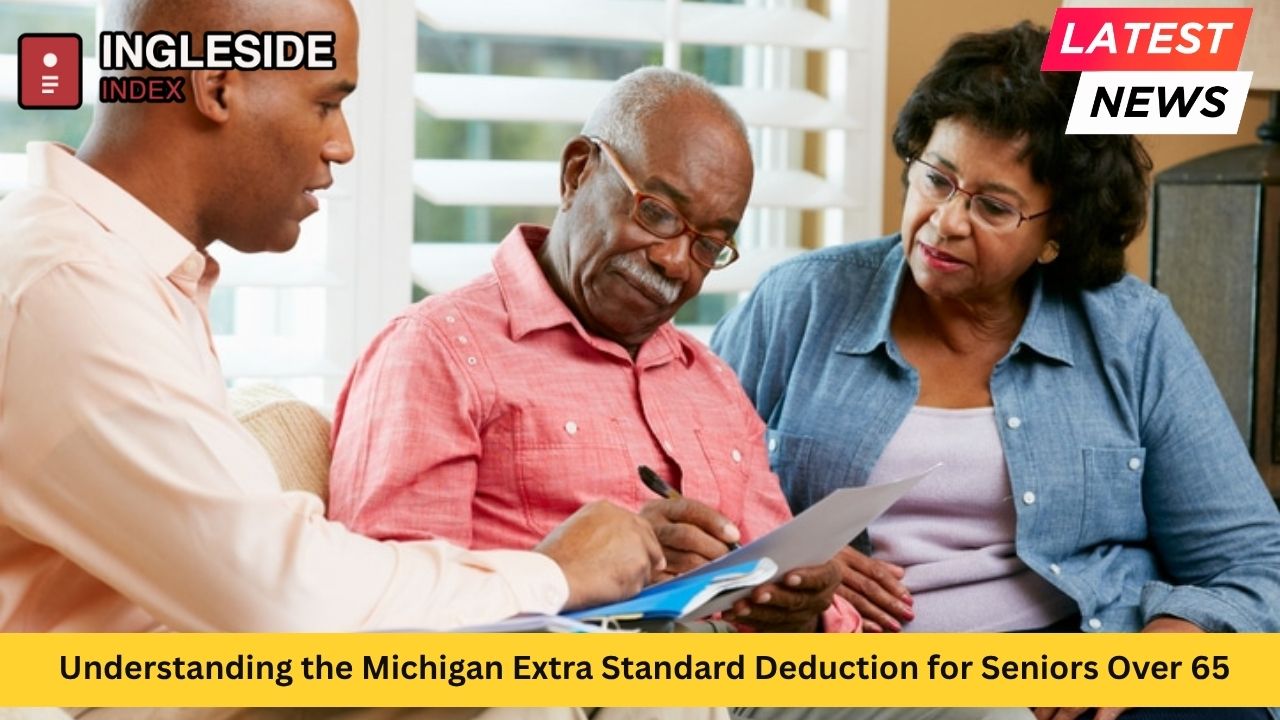Retirement brings a unique set of opportunities and challenges, and one of the most pivotal considerations for Michigan seniors is understanding how state tax laws can help maximize income and reduce financial stress. With a growing population of residents aged 65 and older in cities from Detroit and Grand Rapids to Traverse City and Kalamazoo, Michigan has developed specific tax provisions to benefit its senior community. This comprehensive guide explores the extra standard deduction for seniors over 65 in Michigan, city-level impacts, essential statistics, related property tax relief, and practical tips for optimizing retirement finances.
The Landscape of Senior Tax Benefits in Michigan
Michigan seniors have access to multiple layers of tax relief, including exemptions, deductions, and credits designed to acknowledge fixed incomes and retirement realities. As of the latest figures, there are over 1.7 million Michigan residents aged 65 or older, making up around 17% of the state’s population—a proportion expected to rise substantially over the next decade.
Among the most impactful benefits is the “extra standard deduction” available to residents age 65 and above. This deduction often operates in tandem with other credits and pension-related subtractions, creating a multifaceted safety net for older adults.
What Is the Extra Standard Deduction for Seniors Over 65?
The extra standard deduction is a significant tax break, applied in addition to the state’s regular standard deduction. It acknowledges the increased financial strains many retirees may face, such as healthcare costs, reduced income, and housing expenses.
For the current tax year, eligible Michigan residents can take an extra deduction on their state income tax return once they turn 65, whether they live in Ann Arbor, Lansing, Flint, or Saginaw. This deduction is adjusted periodically for inflation and aligns with policy changes in Lansing.
Notably, the deduction amount may differ based on whether an individual is filing singly or jointly with a spouse, and it can operate alongside pension subtractions and Social Security exclusions to further reduce taxable income.
How the Deduction Works
Here’s how the Michigan extra standard deduction for seniors functions:
-
Eligibility: Any Michigan resident who is 65 or older by the end of the tax year. Both members of a married couple must be 65 to claim double the deduction on a joint return.
-
No Income Cap: The deduction is available regardless of income, though other credits, such as the property tax credit, may have income-based limits.
-
Automatic with Age: Turning 65 by December 31 automatically confers eligibility for the extra deduction in that tax year.
This deduction is particularly valuable in cities with higher costs of living, such as Birmingham or Grosse Pointe, where retirees are seeking ways to manage property and income taxes.
Here is a table summarizing key aspects of the Michigan Extra Standard Deduction for Seniors Over 65, as discussed in the previous article:
| Feature | Details |
|---|---|
| Eligibility | Michigan residents aged 65 or older by the end of the tax year. Both spouses must be 65+ for the full joint benefit. |
| Cities Benefiting | Detroit, Grand Rapids, Traverse City, Kalamazoo, Ann Arbor, Lansing, Flint, Saginaw, Bay City, Monroe, Holland, Marquette, Port Huron, Muskegon, St. Joseph, Dearborn, Livonia, Sterling Heights, Petoskey, Midland |
| Deduction Type | Extra standard deduction, in addition to the regular Michigan standard deduction. |
| No Income Cap | Available regardless of income—other credits (like the Homestead Property Tax Credit) may have income-based limits. |
| Additional Senior Exemptions | Seniors can claim an added personal exemption, further reducing taxable income. |
| Pension Subtractions | Subtraction or exemption on public/private pension, IRA, 401(k) income. Phased and tiered by birth year. |
| Recent Legislative Proposals | Efforts to fully exempt property taxes for persons 70+, notably Senate Bill 292 (not yet enacted, would start after Dec 31, 2025). |
| Property Tax Credit | Homestead Property Tax Credit; seniors can claim a credit (potentially up to $1,200) based on taxes paid and income, claimable for up to 4 years retroactively. |
| Applicable Documentation | Proof of age, spouse’s age if filing jointly, plus documentation for property credits and pension income. |
| Service Support | Local tax clinics, senior centers, municipal workshops, and nonprofit partners statewide providing help with forms and information. |
| Average Senior Homestead Credit | Approximately $746 yearly benefit claimed by seniors statewide. |
| Average Social Security Income | About $1,700 per month for Michigan retirees on average. |
| Claim Process | Filed with annual Michigan income tax return; review annually for legislative and policy updates. |
This table captures the core elements and geographic breadth of the Michigan extra standard deduction for seniors, the related exemptions, practical application details, and other key facts integral for retirees across the state.
Additional Income Exemptions for Seniors
Alongside the extra standard deduction, Michigan offers an added personal exemption for seniors over 65. This means those in retirement benefit from both a higher deduction and an additional exemption on their taxable income.
For example, Detroit and Grand Rapids residents over 65 can subtract an extra amount from their taxable income, further reducing the tax liability that comes with their pensions, IRA distributions, or Social Security.
Pension and Retirement Income Subtractions
In Michigan, eligible taxpayers can also subtract retirement and pension benefits from their taxable income—as reflected in tax policy updates. This applies to a variety of retirement accounts, including public and private pension payments and 401(k) distributions. The subtraction can range from a set dollar amount up to an unlimited exemption for some categories of public-sector retirees.
Specific thresholds apply based on the taxpayer’s birth year, and recent updates provide for the following tiers:
-
Those born before 1946 (like many seniors in Bay City and Monroe) can claim higher exemptions on public pension income.
-
Those born between 1946 and 1952 use a general standard deduction against all income sources.
-
Retirees born after 1952 gradually phase into these benefits as state law evolves.
This tiered approach allows for tailored relief based on generation and retirement plan type, ensuring the deduction remains both fair and beneficial.
The Enhanced Senior Deduction: Recent Developments
Michigan lawmakers have continually reviewed senior benefits to align with inflation and the realities of modern retirement. Recently, proposals have emerged for even wider deductions:
-
Some laws phase in additional pension subtractions and enhanced senior deductions, with proposals for married couples with both spouses over 65 to receive notably higher collective deductions.
-
Discussions in Lansing and local governments, such as in Traverse City and Battle Creek, include reducing property taxes for seniors over seventy, with the intent of bolstering homeownership and keeping retirees in their homes.
These progressive policies reflect a commitment to serving the state’s senior demographic.
Homestead Property Tax Credit: Relief Beyond the Deduction
Beyond income tax advantages, the Homestead Property Tax Credit provides relief to homeowners and renters aged 65 and older. This credit can effectively reimburse all or a portion of property taxes paid, depending on income and property value.
-
Credit Amount: The maximum property tax credit can reach up to $1,200 for seniors whose property taxes exceed a certain percentage of their income.
-
Applies Statewide: Seniors from Holland to Marquette can claim this credit, making it a crucial tool for fixed-income retirees coping with rising property values and taxes.
-
Easy Access: The credit is available for up to four years, so eligible seniors can make retroactive claims if they missed applying previously.
Many cities—Detroit, Lansing, Port Huron, and more—actively encourage seniors to utilize this credit, recognizing its role in preventing displacement due to unaffordable taxes. Locally, city offices and nonprofit organizations often offer help with completing the necessary forms.
Legislative Moves for Seniors: A Glance at Proposed Bills
Michigan legislators recognize the pressure property taxes can exert on elderly homeowners. Recent bills have aimed to exempt seniors over 70 from property taxes entirely. For example, Senate Bill 292 would, if enacted, permit anyone age 70 or older who owns and occupies a Michigan home as their principal residence to file for a complete property tax exemption starting after December 31, 2025.
Should this bill pass, cities like Kalamazoo and Sterling Heights could see a significant reduction in senior property tax bills, setting a new benchmark for age-based relief nationwide.
City-by-City Impact of the Deduction
While Michigan’s rules are statewide, local property taxes, living costs, and demographic shifts mean that the impact of this deduction varies by region:
-
Detroit: With the largest senior population in the state, thousands benefit each year from both the property tax credit and income tax deductions. The city’s extensive outreach programs ensure seniors are aware of these opportunities.
-
Grand Rapids: The area is home to many retirees, especially in neighborhoods like Eastown and Heritage Hill, where housing stability is bolstered by both city and state support.
-
Traverse City: A popular spot for retirees, where property values have risen, increasing the importance of tax credits and deductions for fixed-income seniors.
-
Ann Arbor: The city’s universities and health facilities attract many retirees. Ann Arbor’s cost of living makes the extra standard deduction especially valuable for local seniors.
-
Lansing: State government employees retiring in the capital area often benefit from the maximum public pension deductions, plus the extra standard deduction.
The Numbers: Retirement Finances and Tax Relief
Michigan’s commitment to supporting older residents is clear in the numbers:
-
There are now over 356,000 seniors statewide receiving the homestead property tax credit, averaging $746 in annual benefit.
-
The average Social Security benefit for Michigan retirees is approximately $1,700 monthly, but this is often not enough to cover rising living expenses in major cities.
-
Michigan ranks among the top ten states for tax relief measures focused specifically on older adults, ensuring that cities from Midland to Petoskey offer competitive support to their senior populations.
These statistics underscore why understanding and claiming all available deductions is crucial for maximizing retirement security.
Understanding the Application Process
Claiming the extra standard deduction is straightforward but requires attention to deadlines and documentation:
-
Annual Claim: The deduction must be claimed when filing the yearly Michigan income tax return.
-
Documentation: Residents must document their age and, if filing jointly, their spouse’s age.
-
Other Credits: Seniors should also investigate eligibility for the Homestead Property Tax Credit and credits for heating assistance.
-
Local Help: Many Michigan counties and cities, including Muskegon and St. Joseph, offer local tax clinics or partner with nonprofit organizations to assist with state forms and questions.
Tips for Getting the Most from Michigan’s Senior Tax Benefits
-
Review your eligibility each year, especially as legislation and deduction amounts can change.
-
Work with a qualified tax preparer familiar with Michigan’s senior tax advantages.
-
Retain copies of any pension, retirement, or Social Security documentation to streamline the deduction process.
-
If you move from one city to another—say, from Flint to Traverse City—update property tax records and ensure correct city residency status for deductions and credits.
-
Seek out local senior centers or municipal offices (such as those in East Lansing or Royal Oak) for educational workshops on state tax benefits.
Looking Ahead: Michigan’s Aging Population and Policy Adaptation
As communities such as Dearborn and Livonia see growing numbers of seniors, Michigan’s legislature is likely to continue expanding and refining its tax relief programs for older adults. Besides current deduction improvements, future changes may see new credits, larger deduction thresholds, and greater city-level funding for senior outreach.
Conclusion
Navigating retirement finances in Michigan means more than simply drawing down savings or collecting Social Security. The state’s extra standard deduction for seniors over 65, combined with unique exemptions, credits, and city initiatives, can make a substantial difference in the financial well-being of retirees from Detroit’s riverfront to the lakeshore neighborhoods of Muskegon.
Understanding these provisions, staying current on legislative changes, and taking advantage of local resources empowers Michigan’s seniors to enjoy a secure, comfortable, and dignified retirement. As the state continues to prioritize its aging population, residents can look forward to even more supportive policies and expanded tax relief in the years ahead.











Leave a Comment